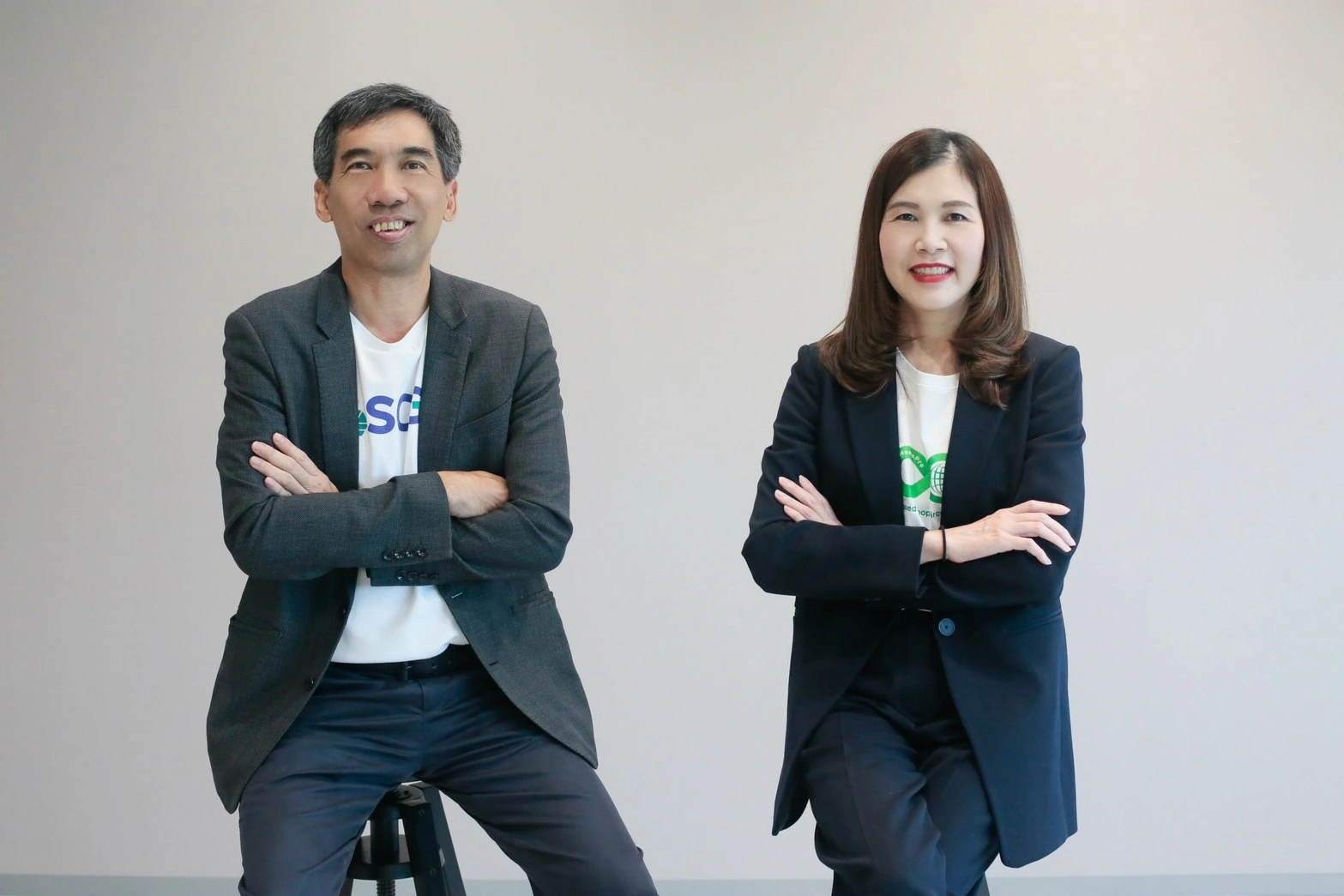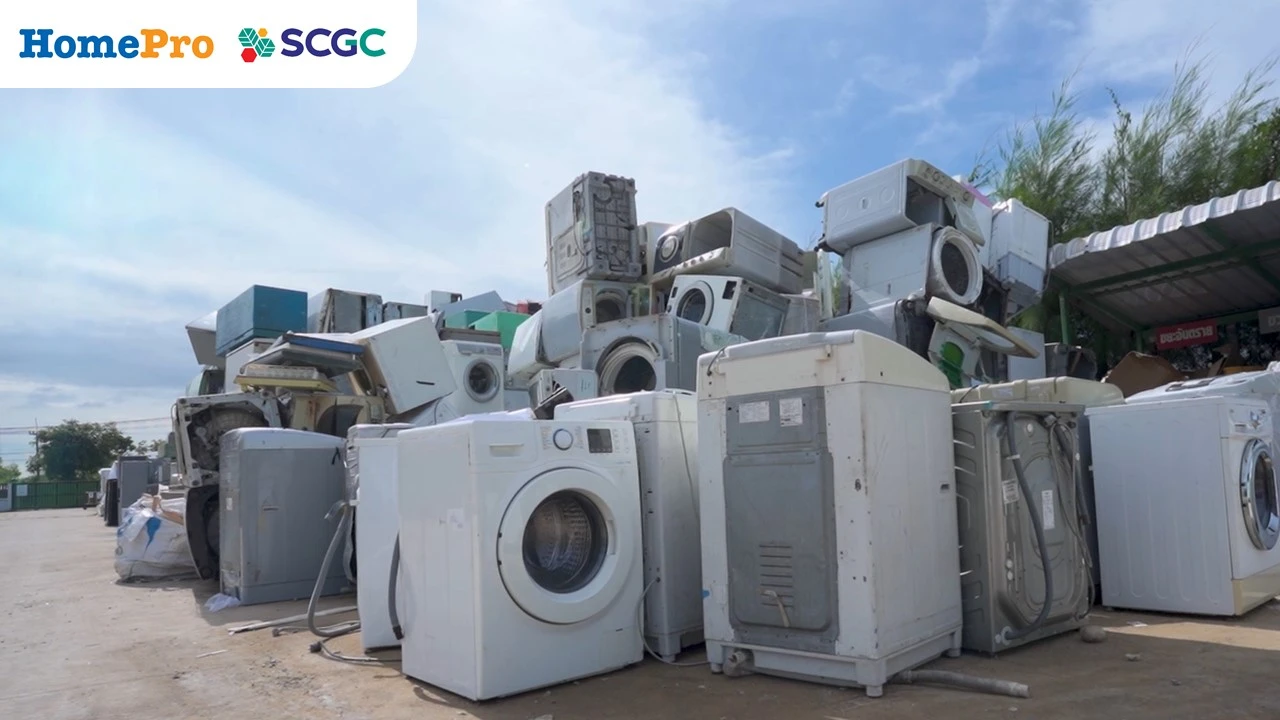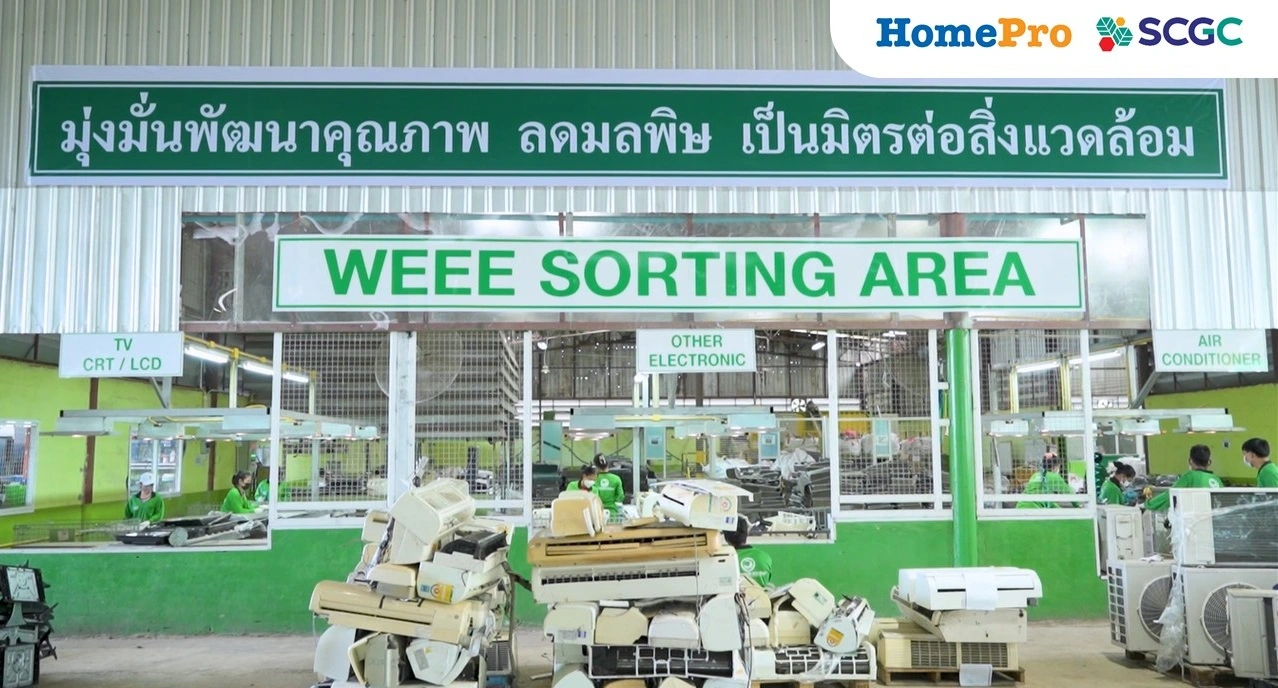Amidst the global environmental awareness trend among consumers, Circular Products, or environmentally friendly products derived from recycling used materials to create new value and maximum benefit, are gaining popularity. Designed for reuse, easy recycling, or made from recycled materials, they adhere to the circular economy principles, emphasizing efficient resource utilization to reduce natural resource consumption, waste volume, and carbon emissions. It's a vital mission that requires collective effort across all sectors to protect our one and only planet.
In Thailand, environmental concerns hold significant importance, which is evident in the growing phenomenon of the circular economy within the country. One such milestone is the collaboration between SCGC and HomePro, which introduced 'Closed-Loop Circular Appliances.' This initiative transforms old electrical appliances into new ones through a closed-loop system. It manages used electrical appliances from HomePro customers and returns them to the recycling process with complete circularity through SCGC's Green Innovation. The conversion of used plastic into high-quality recycled plastic resins, known as Green Polymer, enables the production of eco-friendly electrical appliances, thus reintroducing new value to consumers. Both companies share sustainable development goals, aiming for a carbon-neutral future by 2050, promoting the creation of Circular Products through the Closed-Loop system as a mission towards concretely achieving these objectives.
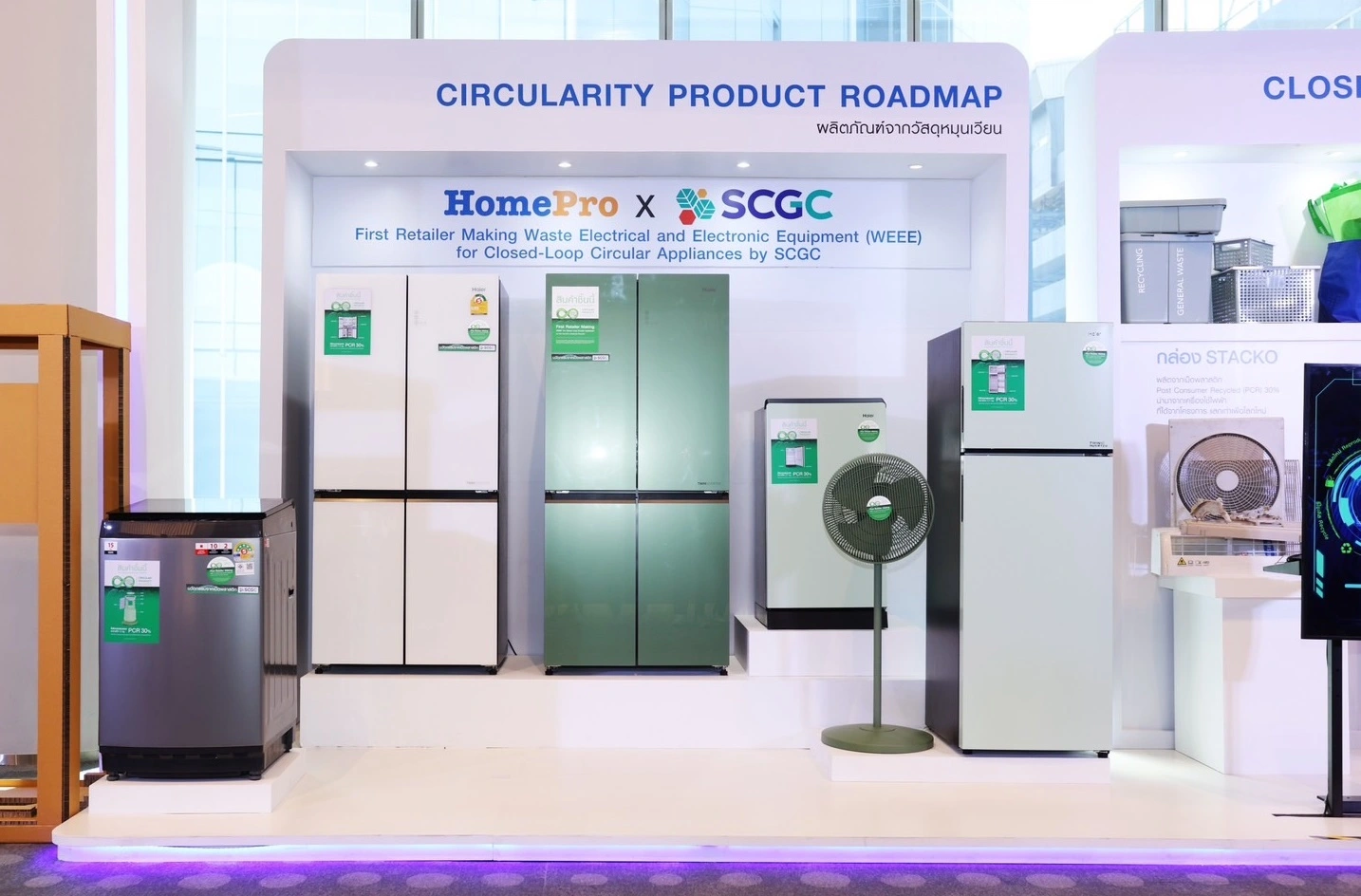
Saowanee Sirariyakul, Senior Vice President for Marketing of Home Product Center Public Company Limited, or 'HomePro,' explained the inception of the 'Closed-Loop Circular Appliances' project, saying that HomePro's business revolves around selling a diverse range of home-related products, with electrical appliances making the largest proportion. HomePro recognizes that many brands consistently strive to innovate each year to enhance customers' lives, whether through water or energy conservation initiatives or by introducing innovations to improve convenience in daily living.
As manufacturers aim to develop new products for consumers' betterment, where HomePro is a selling channel, they often encounter a significant challenge: customers wanting to replace their electrical appliances but are unsure of proper disposal methods. This challenge led to the idea of a trade-in program, “Old for New,” where HomePro invites customers to exchange their old household items participating in the program for new ones for discounts on new purchases. This project has garnered significant interest, with many customers happily engaging in the process, particularly with the facilitated product transportation.
“As the number of old products increased, HomePro began brainstorming new ideas to responsibly manage these items from our customers' homes and products resulting from HomePro's operations, which then developed into the Circular Products project. We collect old electrical appliances from HomePro customers' homes. Items that cannot be refurbished are disposed of responsibly, while those that can be recycled are brought back to create new, high-quality, and exclusive products for our HomePro customers. This marks the beginning of HomePro's collaboration with key partner SCGC."
Dr. Suracha Udomsak, Chief Innovation Officer and Executive Vice President of SCG Chemicals Public Company Limited, or SCGC, shed light on the narrative of Green Polymer innovation's crucial role in the Circular Products industry. Plastics, or polymers, are versatile materials that benefit industries and promote the quality of life of people worldwide. Polymers have been ingrained in our daily lives for a long time. Even during a crisis like the COVID-19 pandemic, the demand for plastics has increased, addressing hygiene concerns. Additionally, there's a focus on polymer innovation towards Low Waste, Low Carbon, which aligns with sustainability goals and paves the way for a low-carbon society. Hence, SCGC integrates circular economy principles, under ESG policies, in its business operations, promoting closed-loop systems to ensure plastics return to the recycling process and do not pollute society or the environment.
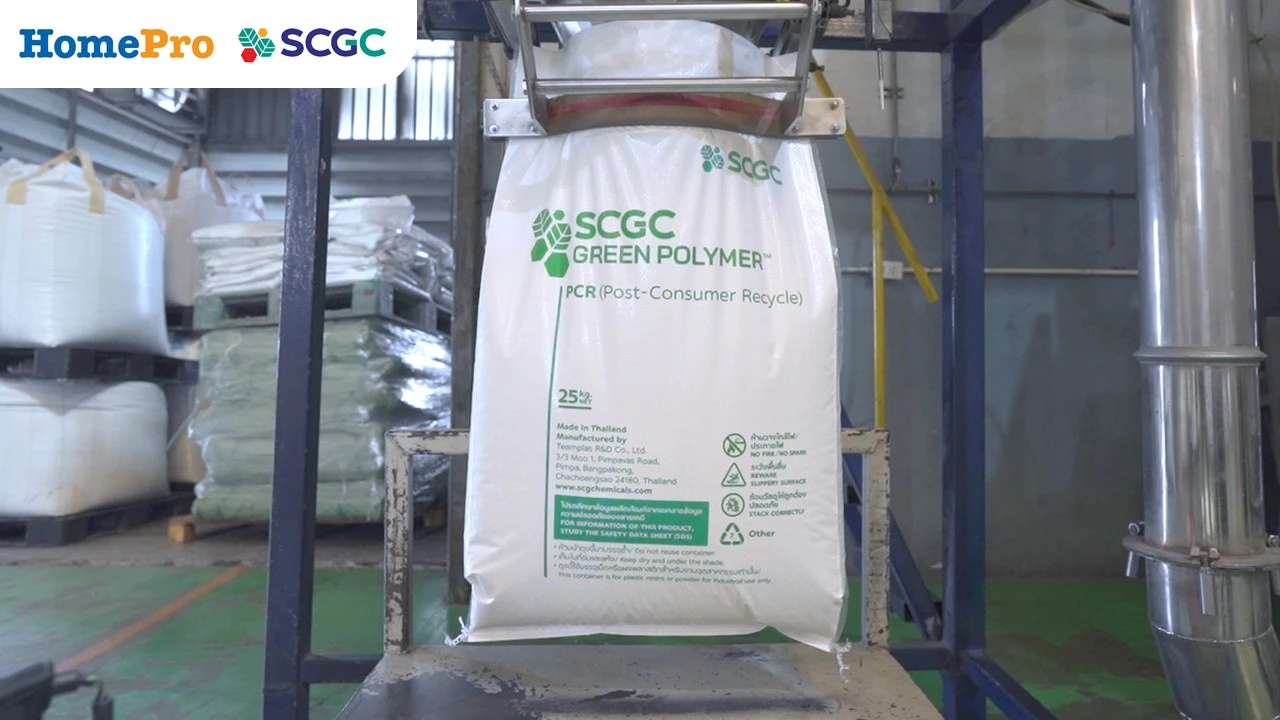
SCGC has been in the petrochemical business for over 40 years, producing plastic resins for domestic and international markets. Through continuous innovation, SCGC has developed green polymer innovations to cater to industrial sectors and consumers alike under the SCGC GREEN POLYMERTM brand. These innovations address usage needs while simultaneously tackling environmental challenges. We have four main solutions: Reduce, which is aimed at minimizing resource consumption; Recyclable, which focuses on design for recyclability; Recycle, which facilitates recycling; and Renewable, which promotes resource circulation. Our goal is to produce 1 million tons of Green Polymer annually by 2030 to significantly reduce plastic usage. SCGC has collaborated with business partners and brand owners to implement these solutions in various practical applications, such as eco-friendly packaging solutions.
Additionally, SCGC recognizes the potential of used plastics, particularly in the Waste Electrical and Electronic Equipment (WEEE) category. Despite electronic device circuit boards being damaged, a substantial amount of plastic waste retains intrinsic properties. This poses a challenging question: how to improve and reuse these plastics multiple times while maintaining high quality?
“The situation regarding electronic waste (WEEE) in Thailand, as reported by the Department of Pollution Control, reveals staggering numbers. In 2022, WEEE amounted to a high of 439,495 tons, with plastics alone possibly reaching tens of thousands of tons. Without proper recycling, such waste may end up in inappropriate disposal processes like incineration or landfilling, posing health and environmental risks. However, if we upgrade their value and provide second or third life opportunities, it will undoubtedly benefit our planet. It also aligns with market trends where environmental concerns are increasingly prioritized, with an increasing number of early adopters. Hence, our two companies have come together to address this market demand.”
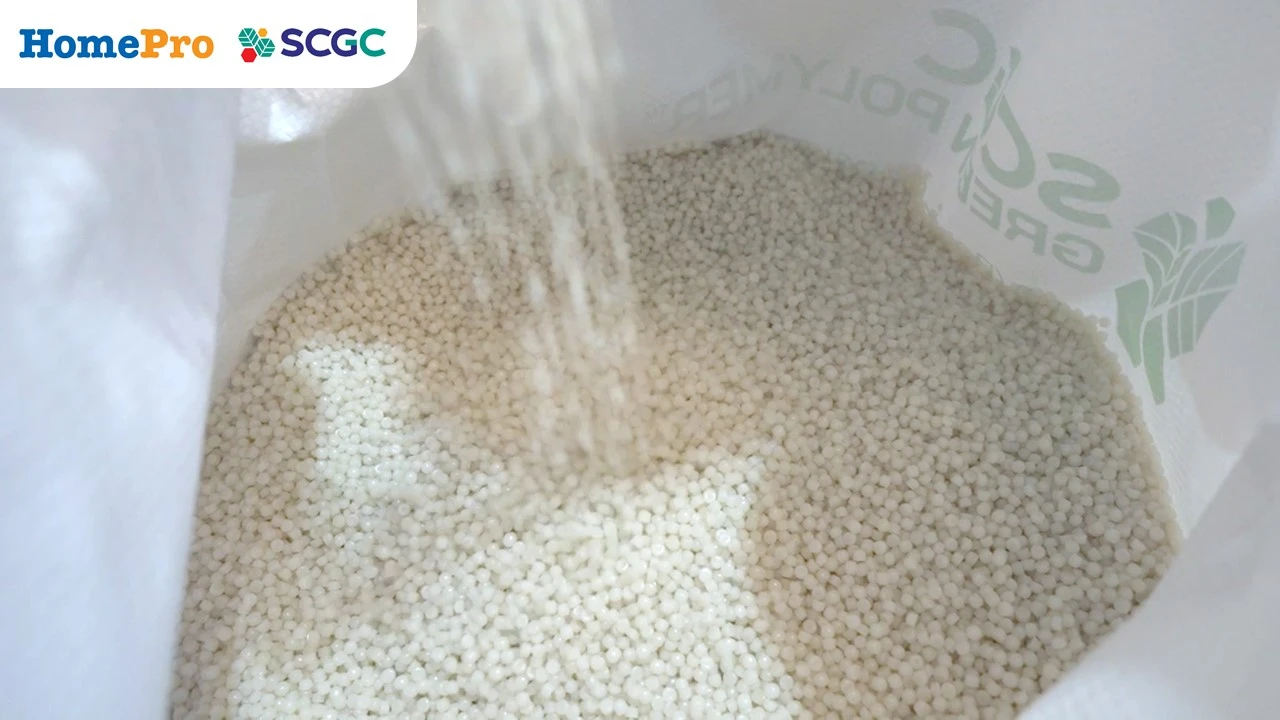
Consumers Invest in Change for The Planet
Saowanee emphasized that Thai people are increasingly conscious of environmental issues. People perceive the apparent changes through a series of disasters worldwide, which also impact them directly. This awareness stimulates consumer behavior changes, reflected through data collection. HomePro customers' preferences show that over 20% are willing to purchase eco-friendly products and are eager to pay approximately 10% more if these products are environmentally friendly. This reflects a changing behavioral pattern, allowing HomePro to see clearly that consumers are willing to buy products and services that improve their lives and the planet.
"Seeing this clear market trend, HomePro has set the goal that we aim to sell Circular Products at least 20% of total revenue. This goal is crucial as we strive together with SCGC. Additionally, we aim to recycle all plastics, whether retrieving sold electrical appliances for recycling or exploring possibilities for plastic film and strap recycling in plants. We are exploring possibilities to work with SCGC moving forward."
After setting the initial target, several appliance brands have shown immense interest. For HomePro, the benefits include a positive brand image, increased brand value, and leadership in the industry. Participating in the ‘Closed-Loop Circular Appliances’ project has instilled confidence in HomePro's partner brands through sales promotion, discounts, distribution channels, and marketing campaigns. This collaborative effort demonstrates a mutually beneficial working approach in a sustainable manner.
Despite Being Circular Products, Quality Has Never Been Compromised
Circular Products, while representing a sustainable trend for this world, still face a number of challenges and obstacles. These include higher product costs than regular products, complex design processes, manufacturing steps, and consumer behaviors that may still be unfamiliar. Dr. Suracha emphasized that we have control at every step, from production to storage and environmental issue checks, which create confidence in both brand owners and consumers.
"At SCGC, we have innovative processes and quality production standards. SCGC GREEN POLYMERTM plastic resins undergo quality checks that are equivalent to virgin resin or new plastic. They are rechecked during manufacturing. Hence, every step is thoroughly inspected until the product meets the standards. Additionally, each brand owner has their own internal standards. Therefore, we can be confident that each brand will not compromise quality."
Although conducting business in line with ESG principles comes with significant costs, limitations, and numerous challenges, every journey must begin with a first step. Today, SCGC and HomePro have decided to embark on this path of sustainability together.
"I believe SCGC is fortunate to collaborate with HomePro, which shares a similar commitment to this cause. This starting point doesn't mean it's costless; it requires effort and perseverance. If everyone doesn't think alike or isn't fully committed, this wouldn't be possible. It's evident that interested consumers and willing entrepreneurs are necessary for new ventures like this because these efforts aren't profitable from day one, especially concerning environmental matters, which require substantial investment. Therefore, I believe finding entrepreneurs ready to collaborate as a complete Value Chain and walking together is crucial. Today, we have achieved this," concluded Dr. Suracha.
_________________________________________
Sources: https://www.prachachat.net/advertorial/news-1545573



